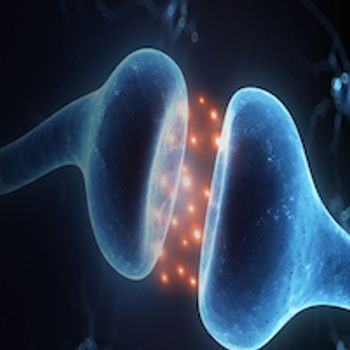
Several agents are currently in development geared at the relief of off-time for patients with Parkinson.

Several agents are currently in development geared at the relief of off-time for patients with Parkinson.

Cannabinoids are being explored in a variety of conditions, ranging from Alzheimer disease to migraine.

IncobotulinumtoxinA significantly reduced unstimulated salivary flow rate for patients with sialorrhea.

Neurology News Network for the week of October 6, 2018.

The results suggest that early use of donepezil may be efficacious against cognitive decline but not for the prophylaxis of psychosis.

When physicians can’t rid patients of their disease, it’s important to remember that they can still help patients live well with it.

Almost 45% of those who received an antidementia treatment experienced the never event of co-administration of a high-potency anticholinergic medication and an acetylcholinesterase inhibitor.

Neurology News Network for the week of September 28, 2018.

An independent investigation out of UC San Diego has found no statistically significant evidence showing a higher risk of mortality with the therapy compared to quetiapine or combination therapy.

The movement disorder specialist in the Henry Ford Health System spoke about the needs for improving treatment and diagnosis of Parkinson disease.

A retrospective analysis has established clinical distinctions between expressions of juvenile Huntington disease, suggesting a need for a reclassification.

With the planned submission of an IND for the first AAV gene therapy for the rare genetic condition, some experts are wondering if things are moving too quickly.

Despite concerns amid reports of deaths and serious adverse events, the FDA has confirmed the safety profile of the therapy has remained consistent.

Previously, in a 5-year phase I-II trial, the rAAV vector serotype rh.10 showed promising safety data.

The Director of the Movement Disorders Clinic at the University of Louisville emphasized the importance of knowing each patient, where they’re coming from and their goals.

The director of the Movement Disorders Clinic at University of Louisville spoke about current therapies available for patients but stressed that they often don’t address the non-motor features.

The VMAT2 inhibitor showed improvements through 48 weeks, though after halting therapy, some loss of improvement was observed.

The COMT inhibitor resulted in 65-minute and 39-minute decreases in mean off time for patients who switched from placebo and entacapone, respectively.

Can this first-of-its-kind guideline for identifying biomarkers in Parkinson disease invigorate a drive for disease-modifying therapy development?

For those at-risk for Parkinson disease, reducing systemic inflammation could decrease the incidence of the movement disorder.

Could GlaxoSmithKline and 23andMe use genetic data to create landscape-altering therapies for hard-to-treat conditions?

The use of DBS in early Parkinson could slow rest tremor progression in patients.

The subcutaneous infusion resulted in 1.89 fewer hours per day spent in “off” periods compared to placebo.

IONIS-HTT Rx is the first and only drug to demonstrate reduction of mutant huntingtin protein in patients.

The professor of neurology provided insight into the field of deep brain stimulation and how Abbott's recent FDA approval is a solid step forward.